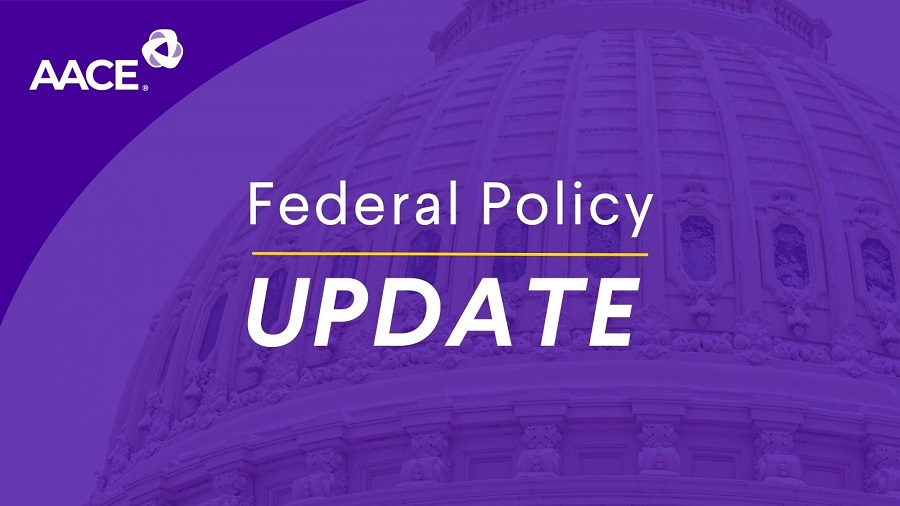
By: Julius W. Hobson, Jr.
Medicare Advantage Oversight Hearing
On June 28th, the House Committee on Energy and Commerce Subcommittee on Oversight and Investigation held a hearing on “Protecting America's Seniors: Oversight of Private Sector Medicare Advantage Plans."
Witnesses the HHS Office of Inspector General, the General Accountability Office, and the Medicare Payment Advisory Commission. They all testified that more congressional oversight is needed to ensure that Medicare Advantage plans are providing quality care for program beneficiaries while being responsible stewards of taxpayer dollars. No one from the Centers for Medicare and Medicaid (CMS) testified at the hearing.
The hearing follows recent reports about Medicare Advantage plans improperly denying coverage requests, inflating the severity of patient diagnoses to receive higher payments, and failing to provide the program savings they were designed to produce. An HHS OIG study in May found that 13% of prior authorization requests denied by MA plans actually met Medicare coverage rules.
Close to 500 medical groups are backing bipartisan legislation in the House (H.R. 3173) and Senate (S. 3018) to regulate the coverage approval process for Medicare Advantage plans.
Medicaid: State Directed Payments in Managed Care
On June 28th, the U.S. General Accountability Office (GAO) released a report entitled Medicaid: State Directed Payments in Managed Care. What GAO Found: The federal government and states share responsibility for financing Medicaid payments for care provided to Medicaid beneficiaries. One way states may provide Medicaid services is under a managed care model. Generally, managed care plans determine how they pay providers. In 2016, the Centers for Medicare & Medicaid Services (CMS), which oversees Medicaid, began allowing states to direct payments to providers in Medicaid managed care under certain circumstances and generally contingent upon CMS approval. Within those parameters, states determine the criteria for provider receipt of a payment. For example, a state may establish a directed payment for providers that meet a performance target for improving timely access to care. State use of directed payments has become widespread.
CMS has taken recent actions and has planned others to enhance oversight of state directed payments, though the effectiveness of these efforts is unknown. In 2021, CMS clarified guidance and began requiring states to submit additional information, such as estimated payment amounts, prior to approval of directed payments, in part, to strengthen program integrity. Other efforts are underway. For example, CMS officials said the agency is considering ways to make approved proposals public, which would increase transparency.
Although CMS has recently made efforts to enhance oversight and has others planned, information gaps remain; for example, CMS requires states to estimate the amount of directed payments prior to approval, but CMS does not have information on the actual amounts paid. In December 2020, GAO made a recommendation that if implemented would address some of the information gaps CMS faces. Specifically, GAO recommended CMS should collect and document complete and consistent provider-specific information about Medicaid payments to providers, including state directed payments. Doing so would likely improve CMS's ability to identify potentially impermissible financing and payments for additional review. GAO plans to continue examining CMS's oversight of these payments.
PBM Legislation—Committee Action
The Senate Committee on Commerce, Science, and Transportation today advanced the bipartisan Pharmacy Benefit Manager Transparency Act to the full Senate. The legislation was introduced by Sens. Maria Cantwell (D-Wash.), Chair of the Commerce Committee, and Chuck Grassley (R-Iowa), Ranking Member of the Judiciary Committee, to increase transparency in prescription drug pricing and hold pharmacy benefit managers (PBMs) accountable for deceptive and unfair practices that drive up prescription drug costs. The bill was approved 19-9.
The Pharmacy Benefit Manager Transparency Act of 2022:
- Prohibits PBMs from engaging in spread pricing, arbitrarily, unfairly or deceptively reducing or clawing back drug reimbursement payments to pharmacies, and unfairly charging pharmacies more to offset federal reimbursement changes.
- Incentivizes Fair and Transparent PBM Practices.
- Provides exceptions to liability for PBMs that pass along 100% of rebates to health plans or payers and fully disclose prescription drug rebates, costs, prices, reimbursements, fees, and other information to health plans, payers, pharmacies, and federal agencies.
- Improves Transparency and Competition. Requires PBMs to report the amount of money they obtain from spread pricing, pharmacy fees, and clawbacks; any differences in the PBMs’ reimbursement rates or fees PBMs charge affiliated pharmacies and non-affiliated pharmacies; and whether and why they move drugs in formulary tiers to increase costs.
- Directs the FTC to report to Congress its enforcement activities and whether PBMs engage in unfair or deceptive formulary design or placement.
- Protects whistleblowers from being fired or reprimanded for bringing violations to light and ensures employers cannot force employees to waive such protections with pre-dispute arbitration agreements as a condition of employment.
- Authorizes the FTC and state attorneys general to enforce the Act.
Senate Drug Pricing Legislation/Build Back Better Light
Senate Democrats released the legislative text of drug pricing deal, a scaled-back version of the Build Back Better domestic policy package that stalled last year. Democrats have reportedly asked the Senate parliamentarian to begin reviewing the draft legislation to ensure it qualifies for the budget reconciliation process. This process would enable Democrats to avoid a Republican filibuster.
The plan would allow Medicare to negotiate prices for 10 of the most expensive drugs starting in 2026, with the number of drugs rising to 20 by 2029. It would also penalize companies that hike prices faster than inflation, place a $2,000 annual cap on out-of-pocket costs for Medicare beneficiaries and expand assistance to help seniors afford medications.
The plan would reduce the federal budget deficit by $297 billion over 10 years, according to a November 2021 report from the nonpartisan Congressional Budget Office.
